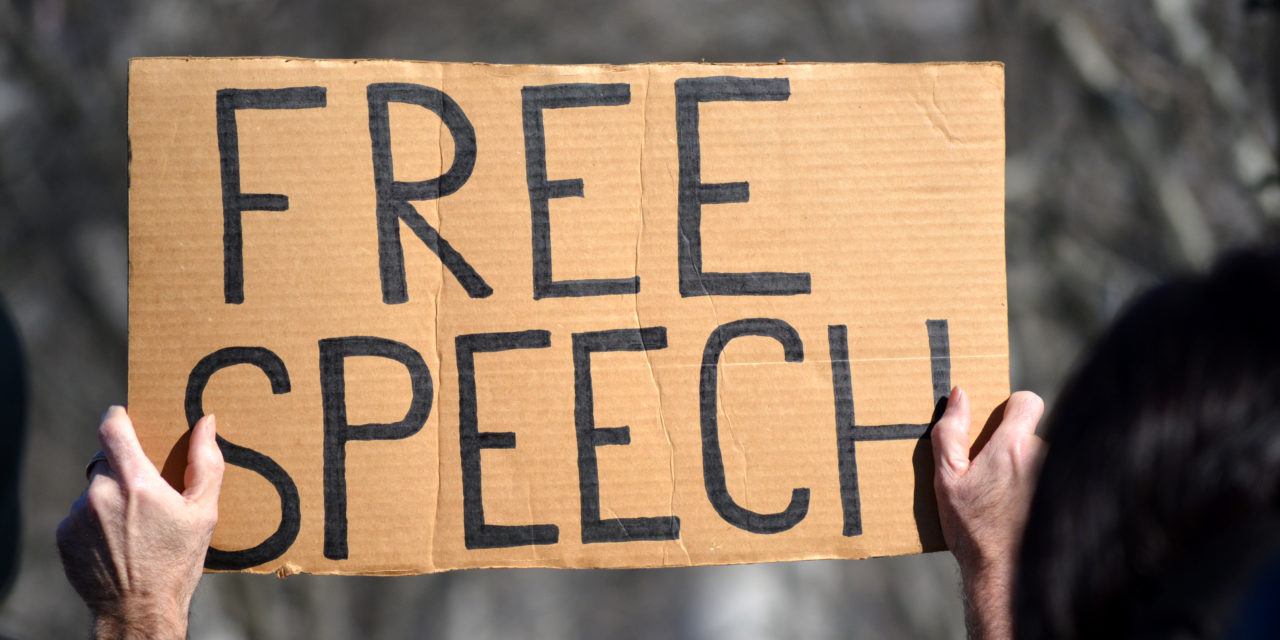The William F. Buckley, Jr. Program released the findings of a national survey of college students, gauging their attitudes toward the Constitution, free speech, expression in the classroom, diversity, racial and gender issues, and compelled speech.
The survey gives a troubling view of what many undergraduate students think about these topics.
Forty-eight percent of the students, for example, believe that “some speech can be so offensive that it merits harsh punishment like the death penalty.” Only 38% of students disagreed, while 15% were unsure.
It’s also disturbing that students, by a margin of 50% to 42%, believe the U.S. is “inextricably linked to white supremacy and most minorities remain excluded from the American promise of equality.”
Students were almost evenly divided about what type of economic system they wanted to live under: 31% favored capitalism, 33% preferred socialism, and 35% were unsure.
The Buckley Program worked with McLaughlin and Associates to conduct the “national survey of 803 undergraduate students attending four-year colleges and universities.” It’s the eighth annual survey from the organization, which was founded by Yale undergraduates “to promote intellectual diversity on Yale’s campus.”
With regard to the U.S. Constitution, only 49% think it is “a very important document that serves as the indispensable rulebook for honest government.
But a sizable minority, 36%, take this view of the Constitution: “It is an outdated document that is over 200 years old. Amending the Constitution to keep up with today’s society is too slow and difficult of a process.”
While 80% believe that the First Amendment guarantee of freedom of speech is an important amendment, some of the responses to other questions show that students don’t necessarily want to see that freedom protected.
Here are some of the questions where a significant percent of students want free speech squashed:
- 41% of students favor their “college or university having speech codes to regulate speech for students and faculty.” 45% oppose speech codes.
- 43% believe, “Political opinions that I find offensive from fellow students – whether in the classroom or on social media – should be reported to school administrators.” 48% disagreed.
- 51% agree with this statement: “There are certain issues that school administrators or professors should prohibit from being debated on campus.” Only 41% of students disagreed with bans on certain topics.
- 38% think that “political comments that I disagree with can be harmful to my mental health,” while a majority, 54%, do not believe this.
- 48% disagree with the statement: “Hate speech, no matter how racist or bigoted it is, is still technically protected under the First Amendment as free speech.” Only 44% believe “hate speech” is protected.
- 41% believe, “If someone is using hate speech or making racially charged comments, physical violence can be justified to prevent this person from espousing their hateful views.” 49% disagree.
Undergrads seem to like the First Amendment in theory, but not in practice, with significant majorities believing in different forms of forced conformity and compelled speech.
A big majority, 65%, agree that employees “at any company, business, or organization should be required to sign statements from their employers in favor of diversity, equity, and inclusion as a condition of employment.” More than two thirds, 67% believe the same thing about their college – professors and administrators should be required to “make statements in favor of diversity, equity and inclusion.”
More than half of the students, 51%, believe their school “should require that students, professors, and faculty state their preferred gender pronouns when introducing themselves.”
A bright spot in the survey is that 74% agree that there are “natural and inherent differences between men and women.” But at the same time, 40% are comfortable with “transgender” college athletes participating in sports leagues different from their “assigned gender at birth.” 49% believe this causes a disadvantage for other athletes.
Finally, a large majority of students, 84%, believe that “incoming students and current college students need to be better educated on the value of free speech and the diversity of opinion on campuses.”
We strongly agree with them on this question.
Related articles and resources:
William F. Buckley, Jr. Program:
- Buckley Program Releases Eighth Annual College Student Survey
- PowerPoint of the Survey with Trends from Previous Years
- Buckley Survey Questions and Results
Daily Citizen:
- Another Public University Learns It Can’t Punish Christian Speech Because it ‘Offends’
- Christian Students Sue University of Idaho over Speech ‘Gag Order’
- Law School Rejects Free Speech Club Over Worries of a ‘Precarious Environment’
- University Backs Off from ‘No Contact’ Order Given to Christian Student Whose Views Triggered Liberal Classmates
Photo from Shutterstock.






